
I've been into Kpop for over eleven years, and during that time I've seen groups come and go, groups disband, member changes, members leaving, being kicked out, and scandals that would shake your soul.
Disbandment is the natural end of a group's era. All bands reach that stage at some point...
Almost all groups!
There are a few exceptions, really just a few, but I wholeheartedly believe that, given the right conditions, BTS can become such an exception.

When trying to predict the future, we look to the past. Events tend to repeat themselves and by looking at past trends it is possible to predict future ones (to all of you in school, this is why history is an important subject as it helps to predict the future).
So, trying to predict BTS's future, I'm going to look at some examples of past and current groups and compare them to BTS's situation.
I've grouped the blog into 8 topics that are crucial to consider when talking about why groups disband.
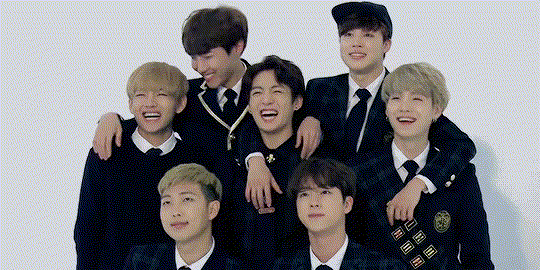
CONTRACT RENEWALS
That time all Kpop fans fear: when their idols are in talks about contract renewals!
Nowadays it usually happens at the 7 year mark after a group's debut and that year is known as the jinx year for Kpop groups as many disband at this point in their careers.
Contract renewals is the biggest reason for Kpop group disbandments!
It's also a time at which member replacements often happen, because companies refuse to give contracts to a specific member, or because a member decides to leave the company, unable to come to an agreement.
Members leaving at the time of their contract renewals happens to a lot of groups; Minzy from 2NE1, Jia from Miss A, Seulong and Jinwoon from 2AM, Lee Joon and Thunder from MBLAQ, and Nicole and Jiyong from Kara, to mention a few.
The idol group Shinhwa is interesting to talk about here. Shinhwa is the longest promoting kpop group ever. They have been together for almost 19 years, and still promote together as an idol group.

Jungkook filmed Celebrity Bromance with Shinhwa member Minwoo and together they talked about what it takes for a group to survive for so long and avoid disbandment. We'll talk more about this later, but first let's look at what happened to Shinhwa when their contracts were up for renewal.
Shinhwa originally debuted with SM Entertainment and when their contracts expired SM offered them new contracts. Just one little catch: SM didn't offer a new contract to member Dongwan.

This didn't sit well with the other members, especially leader, Eric, who strongly protested. Still, SM didn't want Dongwan, so Shinhwa took a stand. The other members refused their contracts with SM and they all signed with a different company so they could continue to be together.
They even went to court against SM in order to gain the rights to call themselves Shinhwa (SM saw the brand name as their own property) and won the case.
If that isn't a badass success story of a group standing together, I don't know what is.
At the original writing of this blog BTS were on their forth year since debut. Since then, BTS have renewed their contracts once. Another contract renewal will be coming up around 2021-2022.
Contract lengths vary from company to company but the industry standard is seven or five years after debut, so that leaves a few years before BTS have to re-consider their contracts and future plans.
MEMBER SATISFACTION
The best way for a company to ensure that their idols stay with them, is to ensure that the idols are satisfied.
Keeping their idols happy is something SM Entertainment has consequently failed at doing. DBSK, Super Junior, EXO, SNSD, and f(x) have all lost members. Some of the idols were pushed out by the company, while others left because of a need to focus on other things, or because of disagreements with the company and to escape the harsh terms of their contracts. All things I would definitely consider a failure to keep their idols happy.

Minzy from 2NE1 is another example of an idol who was side lined and consequently left her group. Due to 2NE1's inactivity after member Park Bom's scandal, Minzy was left completely on her own while the others had solo careers. Without being able to promote with the group and with her company not supporting and encouraging her to pursue a solo career, Minzy was essentially put on standby and couldn't do anything, trapped because of her contract. It doesn't come as much a surprise that this prompted her to switch companies when her contract with YG entertainment expired.
More dramatic was U-KISS's popular member, Dongho's, decision to leave not just his group, but the entire celebrity life. His main reason was his declining health due to harsh schedules.
Looking at BTS, I actually worried a lot about the issue of member satisfaction when Suga had his mint hair. During the Run days they were all especially overworked and sleep deprived.

Suga often talked about being dissatisfied. While we all took it as a joke, and while he might partly have been joking, Suga is also the sort of straight forward person who wouldn't say something like that unless he actually had issues with the company.
The way he talks about his debut, almost as if he was scammed into becoming an idol instead of a hip hop group, also makes me feel that he has had a lot of dissatisfactions with BigHit.
On the upside the fact that he was given black hair for the entire WINGS comeback, as he had requested himself, suggests to me that BigHit does take their idols seriously and does want to listen and keep them happy and satisfied. Suga seems a lot happier these days.
Jin and J-Hope are not as outspoken about their issues but they strike me as people who have certain expectations that aren't met because they both tend to keep quiet and give more importance to everyone else in the group.
I do worry a little about the possibility of Jin deciding to quit the group some day, because he wants to become an actor or wants to leave the celebrity industry entirely. What makes me put those worries to rest is the fact that he truly seems to love his members, and I believe that he would want to stay a part of the team because of that love, and because of what they all have together.
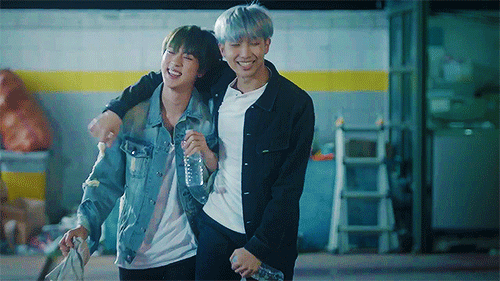
Jin getting the ost for Hwarang with V was a huge deal for me exactly for this reason! I felt like it was BigHit trying to get him something that he wanted, in the same way that J-Hope's solo trailer (with its awesome choreography) seemed to be a way to keep J-Hope stimulated and happy. I feel like these are a efforts on BigHit's part and I hope to see more of it in the coming year.
BigHit also backed up and fully supported both Rap Monster and Suga's mixtapes. Again this, to me, suggests a willingness from BigHit to keep BTS satisfied. They even filmed MVs, despite not being able to make money off the mixtapes. I think that truly says a lot about BigHit!
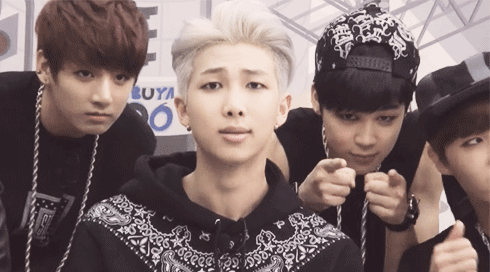
Which gets us to the next point...
COMPANY SUPPORT
Support from the company is something that ought to be a given and yet something that so many idol groups don't have.
Look at the way SM have famously ousted idols from their groups, like Jessica from SNSD. JYP has done the same, with Jay Park who used to be the leader of 2PM before some of his old social media posts were dug up and caused a stir. Instead of standing by Jay Park, JYP Entertainment decided to oust him. As it turns out, Jay Park is on the winning side now, with a successful company and solo career, but it was tough for a long while.
Talking about the Big Three, YG entertainment also provided little to no help when their idols were caught up in scandals (on numerous occasions) and they instead grounded their idols for years, waiting endlessly for the heat to pass.
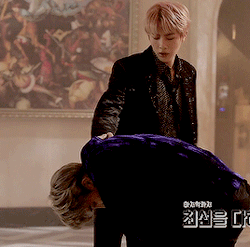
The few times BTS have been swept up in issues and controversies BigHit has acted. They have released statements and acknowledged the issue, but they haven't pulled members from promotions or otherwise lacked to support BTS during those circumstances.
Company support isn't only necessary when idols are caught up in scandals or issues, though. Company support is necessary on a daily basis for a group to continue to promote.
A prime example of why, is Sechskies.

Sechskies were some of the pioneers of Kpop! They had their debut in 1997 with Daesung Entertainment (now known as DSP Media). Sechskies quickly became the company breadwinners and were worked hard. But a year later, the company debuted a girl group, Fin.K.L, and in order to strengthen the new group, they put all of their resources into the girl group. Suddenly Sechskies were left with no attention.
Fin.K.L members were given all the schedules and promotions, and Sechskies survived mainly thanks to their strong fanbase. They kept being side tracked by their company who did not give them support.
In 1999 everyone thought that Sechskies would get the Daesang, but the winners were announced to be Fin.K.L. A fan managed to snap a photo of the trophy which read: "SECHSKIES". That confirmed suspicions that their company was the reason Sechskies didn't get the Daesang. The company preferred to further promote their new girl group rather than reward Sechskies. Imagine how angry and cheated we would all feel if this had happened to BTS.

In 2000 there were rumours about Sechskies moving to a different company, but their old company forced them to disband instead. Officially the reason for their disbandment was that they wanted to stop at the height of their fame (and they truly did) but there were many other factors and lack of support from their company was a big one!
It is not uncommon for a group to be cast aside for a new one to emerge. It has happened many times with many other companies and groups, and especially with companies that started small who didn't have the resources to fully support two groups. FT Island, for example, were also pushed aside when CNBlue debuted, just to mention a more recent episode.
How does this all relate to BTS? Well, right now BTS are their company's breadwinners.
For a long time they were the only group that BigHit put out (2AM and Homme both transferred to the company but weren't made by BigHit). Even with TXT, BTS are still the main focus. What happens when BigHit focuses on a new group?


If BigHit are earnest and smart (which they have been in managing TXT so far), they'll have BTS and the new band do a few promotions together (commercials and photo shoots for example) but not focus all of their energy on the new kids.
YG successfully did this in 2009 with Big Bang and 2NE1. Before their debut, 2NE1 were introduced with a track made for a commercial that they did together with company seniors Big Bang. It was a huge success and introduced 2NE1 to the limelight, insured that they had an income straight away, and all of it without hurting Big Bang's fame and promotions. It was great marketing and a great use of YG Entertainment's resources.
So far BigHit has been both innovative and very smart about their marketing for BTS and they're breaking quite a few norms along the way (like idols having phones and access to social media even during rookie days). I feel confident that they'll continue to work in this direction and won't cast aside BTS when they shift their focus to promote newer groups like TXT.
OVER-WORKING
Over-working is a huge issue in the Kpop industry (as it is generally in Korea too). Many groups have disbanded as a result of their company over-working them, or right out mistreating them.
Some of you might know Kim Jungkook from Running Man. Well he used to be in an idol group called Turbo who debuted in 1995. Turbo were hugely overworked and they had as much as 17 schedules in a single day!
Thankfully conditions have improved since the days when Turbo were first active, but it is still a big issue. Another older example is the famous band Sechskies (again).
Sechskies were incredibly overworked and their company sent them to shady schedules at night clubs despite the members all being underage. They were ordered to participate in a musical and even a film despite their already jammed schedules and with no time to prepare, simply because their company wanted to raise more money.

Sechskies were the first Kpop band ever to work so much that they released two albums in a year, something that we're now used to as fans, especially with BTS who work constantly and release two albums a year, among many other things.
Yes, I'm sorry to say it, but BTS are also overworked. Ever noticed that they often send out tweets at 2am or 3am in Korea when they have schedules the next day? That during a 1am v-live they'll mention that they have dance practice after this? Schedules like the ones BTS have often means that they need to get up between 4am and 6am in order to get their hair and makeup done and arrive at the first event site on time. So if they go to sleep at 3am that isn't a whole lot of sleep...

I adore BTS and I feel very blessed that we get so many promotions and that they release albums so often, but really it's also a sign of being overworked, and please, let's acknowledge that. We owe it to them to acknowledge how hard they work. I could talk about this for a long time and tell you all the signs I see of them being overworked, but that's a post for another time.
Being overworked is actually one of my two main concerns about BTS's future, as it will be an important point for them to discuss in their contract renewal talks, when they reach that stage.

I look at Jin and Suga as being especially vulnerable to feeling the pressure of being overworked.
We joke about Suga always sleeping but if he is working on his own tracks and producing after their schedules, in the middle of the night, that doesn't give him a lot of sleep at night.
His high ambitions pull him through, but will that continue to be enough?
It is also possible that their promotions will get less frequent in upcoming years, because they are now more established, so they can afford to rest up a little between albums. I suspect that we would still get just as many Bangtan bombs, so if that becomes the case, let's continue to support them and be happy that they can also rest.
One thing I really want to credit BigHit with concerning the issue of over-working is that they still take good care of BTS. Especially when the members get sick or ill, which we all know happens often to our God of Destruction, RM. They have also given BTS a proper holiday away from cameras and promotions. Which should not be a big deal, but very much is.

For example with Suga's recent ear injury, a lot of other companies might have demanded that he perform anyways, since it wasn't a hugely visible injury, but BigHit insisted that he rested up as the doctor recommended. Same when RM was injured and talked about it being allowed to participate in dance practices. Over the years I've seen a lot of idols forced to perform regardless of injuries as long as it wasn't a leg injury, and that is NOT okay, so I'm so very relieved that BigHit care for their health. The boys appear to be in good hands.
LACK OF PAYMENT

Also known as: being conned.
It happens in the Kpop industry that artists either don't get paid properly or get right out conned.
Some of you might know the group Block B and maybe you've also heard of the payment scandal they had with their initial company. For those of you who don't, let me lay it out for you
Two years after their debut, the members of Block B filed a lawsuit against their company (Stardom Entertainment) to nullify their contracts because they hadn't been paid.
The court ruled in favour of Stardom Entertainment saying that there was little evidence that they had breached their contract and that the lack of payment wasn't the result of evil intentions....

Thankfully Block B managed to change labels to Seven Seasons and they seem to be doing much better since.
I admire Block B for taking a stand against their company and at such an early point in their career too. It's normal to see idols not getting any pay and yet only rarely does someone take a stand and demand to get paid.
In 2014 B.A.P filed a lawsuit against their company (TS Entertainment). They revealed that the members were supposed to split 10% of all profits but that none of them had been paid for 40 months! Through the lawsuit it was revealed that the accounts were dodgy too and no one could really say how much money had been earned, only how much had been used.
Two years after debut, group Boyfriend revealed in an interview that they still hadn't made any money because they still hadn't broken even.
What do they mean by breaking even? Well, as most of you know, Kpop idols train before their debut and during those trainee years the company invests money into training the members. The invested money is put on a tab for them, like a debt that they owe the company and need to pay back before they can make any money. Furthermore promotional costs such as hair styling, clothes, vocal training, transportation, food and lodging, are all added up to their debt. Breaking even is when they've paid up all the stacked debt and get their first pay check.
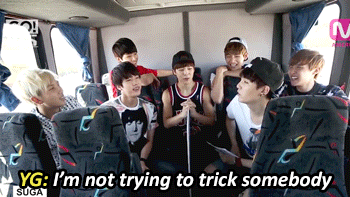
Lack of payment was also big contributor to Sechskies's disbandment, whom we have talked about above.
Sechskies were popular, but their earnings were hugely under-reported by their company in order for the company to make more money and to avoid paying tax.
Their forth album sold 300 000 copies in the first month alone and yet the total sales were reported as 350 000 copies. Fans tend to have a way of finding out the truth though, and they kept their receipts in order to be able to prove how many copies had really been sold. Sechskies' first and second albums sold millions of copies, but were recorded as selling under half of that. As a result Sechskies didn't get paid for more than half of their sales!

There are many other such examples, unfortunately.
I can't tell you if BTS get paid enough or how much they get paid compared to the sales and other earnings. It can be difficult to know unless someone comes out with an official statement.
What I CAN say is that they do get paid, and also get paid in royalties. They've talked about getting royalties for songs they've produced, and about those royalties being higher than the royalties they get from just singing or rapping in a song.
With that I conclude that they do get paid, and also that there is, at least, some transparency as to what they actually earn. Meaning that they do have an idea of what percentage royalties they get individually.
This is hugely important! We all want our idols to get paid for their hard work, after all, and getting paid certainly also helps them being happy and wanting to stay with the group.

MILITARY SERVICE
All Korean men have to serve in the military for 2 years before they turn 30, celebrities too.
If a male idol group survives until military enlistment (and that is a long time), then the military is the biggest hurdle they have to surmount. This is a point at which it's easy for celebrities to fade away and be forgotten, because essentially it's two years where they can't promote. In groups this can be avoided by members going off one at a time and the other members still promoting (Super Junior are a great example of this) or by all going off at the same time and coming back with a big splash.

Big Bang are at that point in their career where members return from the army. They’re interesting to look at because of their previous plans for military enlistment.
Big Bang previously talked about going off all at the same time, and they stated that if they had decided to leave YG Entertainment and sign with another company (like Shinhwa left SM years before) that is what they would have done. YG Entertainment preferred to send them off one at a time.
Most of BTS are still young, and have some years left before they need to talk about what to do concerning their enlistments.
Jin as the eldest needs to head off in 2020, but the youngest, Jungkook, still (as of 2020) has 5 years before he absolutely needs to go. Serving early is definitely a possibility, but considering the age gaps in the group it seems more likely that they will go one at a time.

SURVIVAL RATE WITHOUT GROUP
I wasn't going to talk about this, but then I watched Big Bang on Infinity Challenge, where they, mentioned that they have managed to stay together because all the members realise that being associated with Big Bang is what makes it possible for them to have their solo promotions (this is supposedly also the reason Seungri retired after his scandals).
Big Bang might have said it in a joking manner on a comedy show, but it's a very valid point!
As long as they promote together they will always have that brand value of being a member of Big Bang. This is not to be underestimated.
Some day, when BTS truly begin to branch out with solo activities, I'm certain that they'll also begin to feel the value of the brand BTS. It is definitely a factor that speaks in favour of keeping the group together.

TEAMWORK
Finally we reach it, the heart that makes groups survive through tough times and keep them from disbanding. Teamwork.
On 'Celebrity Bromance', this was also the main focus of the advice Minwoo gave Jungkook. The most important factor for a group to stay together for as long as Shinhwa is teamwork and the ability to talk through problems. Minwoo told Jungkook that everyone in Shinhwa does their best in solo promotions because if they do well, it'll help the group.

Shinhwa are the prime example of what teamwork ought to be. They support each other through good and hard times and they all left their old company behind because they wanted to stay together and didn't want one member to be forced out of the group!
I can see BTS acting exactly in this way if something like that was to happen to them! They would stand together and united they would make a decision!
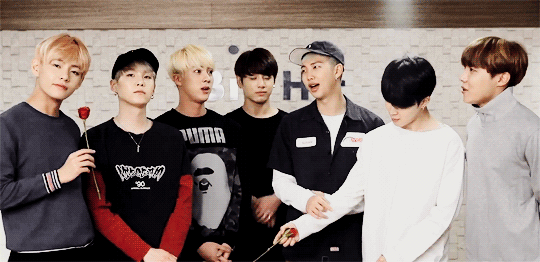
As long as BigHit continues to give BTS support and as long as they all want to stay idols, I see no reason why BTS would disband or stop promoting as so many idol groups do.
Because BTS has what so many teams lack: they have amazing teamwork.
They help each other and support each other and have heart to hearts where they talk through their problems.
They acknowledge the value in working together. They know that they are stronger together. They appreciate each other. They treasure each other.
Together, all seven members complete each other. Together, they can soar through the skies, and with our help, they can fly.

Read More: